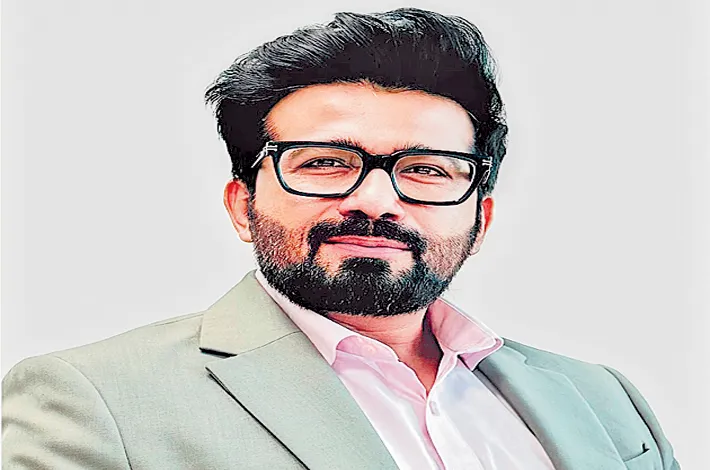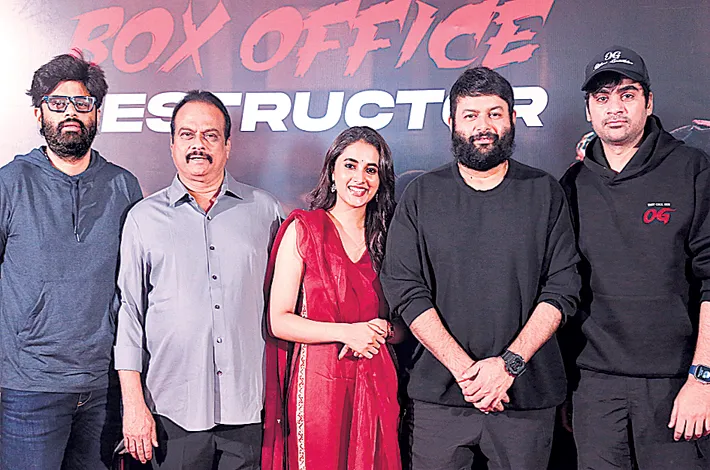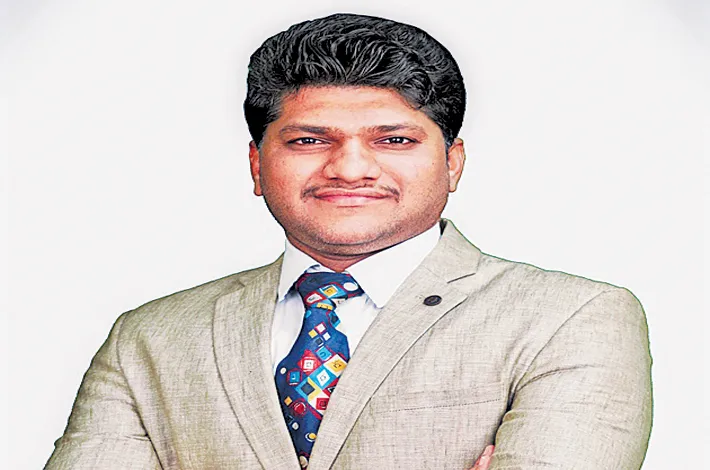Murder in Bulandshahr
23-09-2025 12:00:00 AM

The fog clung to Bulandshahr like a shroud, thick and unyielding, as if the ghosts of its ancient name—Baran—refused to let go. Inspector Vikram Rao stepped off the rattling UP Roadways bus at the edge of town, his worn leather jacket doing little against the November chill. The district headquarters loomed ahead, a colonial relic amid the sprawl of mustard fields and crumbling havelis. Vikram had been summoned from Lucknow for this: the murder of Dr. Arun Mehra, the archaeologist who'd unearthed whispers of Indus Valley relics beneath the Atala Devi Temple's sacred groves.
Mehra's body had been discovered at dawn by a chaiwala scavenging for scrap near the Kali Nadi's muddy banks. Poisoned, the autopsy said—arsenic, slow and sinister, slipped into his evening hookah. In his clenched fist, a shard of terracotta etched with faded script: "Baran's Shadow." Vikram pocketed the photo from the file, his mind already mapping the suspects. Bulandshahr wasn't Nainital's misty romance; it was a powder keg of feuds—land grabs, temple tithes, and buried treasures that could make a man rich or dead.
By midday, Vikram was at the temple, its red spires piercing the haze like accusatory fingers. Pandit Ravi Shastri, the priest with a face like weathered teak, met him at the torana gate. "Arun-ji was obsessed," Shastri muttered, incense smoke curling from his dhoti. "Dug too deep. The devi doesn't forgive desecration." Vikram noted the tremor in the man's voice, the way his eyes darted to the inner sanctum where Mehra had last been seen arguing with a stranger two nights prior.
The stranger was Elias Khan, a wiry antiquities dealer from Agra, his shop a front for Delhi's black market. Vikram tracked him to a dingy dhaba off GT Road, where truckers slurped dal makhani under flickering neon. Khan's stall overflowed with brass diyas and faux Mughal coins, but Vikram's nose for lies twitched at the locked backroom. "Mehra? Just a collector," Khan shrugged, his kohl-lined eyes unblinking. "Bought a potsherd off him last month. Harmless." Vikram leaned in, voice low as the river's murmur. "That shard in his hand? Not so harmless when it points to a hoard worth crores." Khan paled, but swore on his mother's qabr it wasn't him. Vikram slipped a wiretap bug under the counter—old habits from his anti-smuggling days.
Night fell heavy, the town alive with Diwali echoes: bursts of anar crackers and the wail of shehnai from distant weddings. Vikram's jeep rattled toward Neoli village, where Mehra's nephew, young Amit, farmed the family plot. Amit was the ambitious one—eyes on the city, debt up to his ears from failed sugarcane yields. "Chacha was ruining us," Amit confessed over black tea in the mud-walled courtyard, his wife hovering like a shadow. "Saying he'd sell the land to developers for his digs. But poison? I'd never..." His voice cracked, but Vikram caught the flicker—a lover's bangle glinting in the lantern light, not his wife's.
Back in his rented room at Malka Park's crumbling circuit house, Vikram pored over maps. Bulandshahr's elevation made it a smugglers' crossroads: relics funneled from Haryana's ruins to the Ganga's ports. The terracotta shard? A key, Mehra had emailed a colleague days before his death, to a hidden chamber under the temple's banyan grove. But who knew? Shastri, with his deviant's grudge? Khan, hungry for the score? Or Amit, desperate enough to poison the well?
Dawn broke with a tip: Khan's shop had buzzed late, voices hushed. Vikram staked out from a paan stall, breath fogging the air. At 4 a.m., a figure slipped in— not Khan, but Amit, clutching a jute sack. Vikram's heart thudded as he circled, Glock heavy in his holster. Inside, muffled curses: "The map—it's gone. That bastard priest must have it."
Vikram burst through the back door, torch slicing the gloom. Amit spun, sack spilling—tools, not treasures. Khan emerged from shadows, pistol raised. "Stay back, fauj! This isn't your league." But Vikram was faster, tackling him into crates of fake idols. Amit bolted for the alley, but Vikram's shout froze him: "The hookah prasad—from the temple. Shastri's gift. Arsenic traces match the soil here, laced with relic dust."
It unraveled like monsoon threads. Shastri, guardian of secrets, had poisoned Mehra to claim the hoard himself—Baran's lost Indus cache, smuggled for years to fund his illicit ashram in the hills. Khan was the fence; Amit, the unwitting mule, lured by promises of clearing his debts. In the interrogation room, sweat beading under harsh bulbs, Shastri confessed: "The devi demanded silence. Arun saw too much—the shadows of our sins."
Vikram watched the priest led away in chains, the terracotta shard now evidence in a Delhi vault. As the fog lifted over Bulandshahr's elevated plains, he lit a beedi on the circuit house balcony, gazing at the Clock Tower's solemn face. Baran meant "elevated town," but in this land of buried empires, elevation was just another grave waiting to be dug. The Ganga whispered on, indifferent to the ghosts it carried.
Yet, as Vikram boarded the bus south, a chill lingered. In his pocket, a second shard—unnoticed in the chaos—etched with the same script. Mehra's final warning? Or Shastri's curse? The shadows of Baran never truly lifted.








